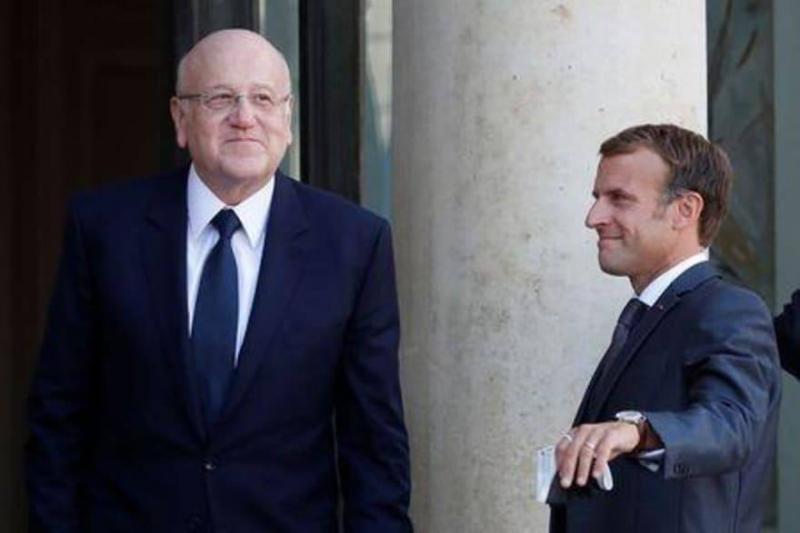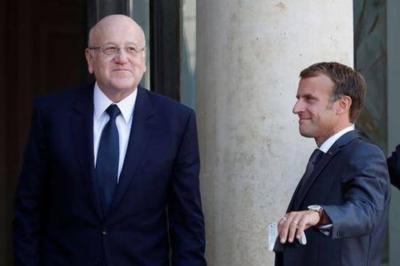Lebanese Prime Minister Najib Mikati announced on Monday that he will hold a meeting with Lazard Financial Advisory soon to discuss how to develop a financial recovery plan that is more realistic to help pull Lebanon out of its crisis. He added that Lebanon would be extremely lucky if it could reach a framework for an agreement with the International Monetary Fund (IMF) by the end of the year. Mikati assumed his position this month with the aim of reviving talks with the IMF.
Mikati, a billionaire business magnate, faces a difficult path in addressing one of the most severe financial crises in modern history. Among the challenges he faces is the limited lifespan of his government, as elections are scheduled for next spring. In his most detailed comments so far concerning the approach he will take to overcome the devastating financial collapse plaguing Lebanon, Mikati stated in an interview with LBC Channel that "the priority is to protect small depositors... responsible parties must fulfill their duties and bear losses in a fair manner among everyone."
Lazard had assisted the previous government in devising a financial rescue plan that estimated losses in the financial sector at $90 billion. However, the plan was scrapped due to opposition from banks, which stated that it placed too much of the burden of the collapse on them, as well as opposition from the central bank and the ruling political elite who led Lebanon into its crisis.
Reaching an agreement on losses is considered the first step toward an agreement with the IMF, which acknowledged the figures in the previous government's plan. Mikati told LBC that he would not announce anything before the completion of the financial recovery plan. He added, "The goal today is to update the economic recovery plan in order to get out of the deadlock we are in."
He indicated that he does not plan to privatize state assets, as the time is "not appropriate." An agreement with the IMF is seen as the only way to obtain aid from foreign donors who demand reforms to address the root causes of the financial collapse, including corruption and government waste. When asked how long it might take to reach an agreement with the IMF, Mikati said that Lebanon would be fortunate if it managed to do so before the end of the year and establish the main framework for the agreement by that time.
Mikati formed his government this month after a year-long political stalemate that intensified the economic collapse, pushing three-quarters of Lebanon's population into poverty and causing its local currency to lose more than 90% of its value. Lebanon has largely prevented depositors from accessing their dollar deposits for nearly two years, compelling them to withdraw in local currency at a rate that reflects an 80% devaluation.
Mikati stated, "I am trying with experts to prevent a (reduction) on bank accounts, and depositors should not bear the loss, and the main goal is to ensure they get their money." He added, "The focus is certainly on protecting small depositors between $50,000 and $70,000; they will definitely receive their money in dollars."
Since taking office, Mikati, who is Sunni, has stated that he will not allow Lebanon to be used in any acts against other Arab countries. In this context, he expressed in the interview, "I am saddened by the use of illegal crossings to violate Lebanon's sovereignty. We are in an independent country that enjoys sovereignty and has an Arab identity, and I will not allow it to be a platform against our Arab brethren in any way; it must distance itself from conflicts and build good relations with the international community and Arab countries."
However, he noted, "I do not currently have a program for a visit to Saudi Arabia." Gulf countries, including Saudi Arabia, which have traditionally provided funding to Lebanon, remain hesitant to take any steps toward Lebanon due to the growing influence of the Iran-backed armed group Hezbollah. He mentioned that he did not discuss Lebanon’s relations with Gulf Arab countries during his meeting with French President Emmanuel Macron in Paris last week.




